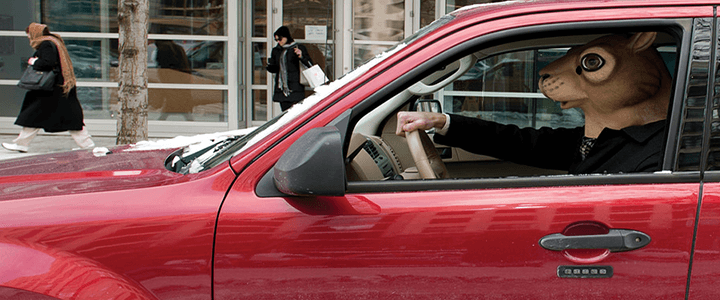Does it seem like you’re commute is getting longer? That’s because it is. A 2015 American Community Survey report, released last fall showed the average American commute was 26.4 minutes in 2015, 24 seconds longer than the previous year. Think the seconds don’t matter? That’s three hours and twenty minutes a year you won’t be getting back.
There’s something about the sight of a line of brake lights in front of me that makes my shoulders instantly tense up. In a metropolitan area like D.C., five miles can take thirty minutes. Thankfully, many areas have many ways to change up your commute. Public transportation or ride sharing/car pooling gives you lots of opportunities to people watch and removes some of the driving burden.
Telework is a great option for many, and it’s clear traffic is probably one reason for the rise in telecommuting. But not everyone has that option to telework. Unless an employer has the capability to build you a personal SCIF at home, most cleared employees can not regularly take advantage of teleworking. Many do not live close enough to a job to consider biking or walking to work.
How do you cope with your daily commute? Whether your commute is long because of traffic or because of the miles, you do have options to make use of the time and increase your job satisfaction and work/life balance.
1. Plan for your commute.
Set aside a change of shoes for commuting and some healthy snacks to have on hand (being hungry and stuck in traffic is not a good recipe for safe driving). I realize that it’s one more thing to get done before you walk out the door, but those five minutes can help you reduce stress. Lower any expectations you might have about traffic and public transportation schedules and prepare for less than optimal commute times each day. Don’t wait until the last minute to leave the house.
2. Identify known alternate routes.
Similar to planning, it helps to assess your normal routes and identify alternate options should public transportation be off schedule or the highway looks like a parking lot. Use Google Maps or Waze to help you plan your ideal route each day – before you leave your house.
3. Turn off your technology.
There are a few exceptions to this rule; however, accessing your smart phone either between stop and go traffic or on the train is rarely stress relieving, and when driving, it’s risky. Mindlessly checking Facebook or Instagram or other applications on your phone does not help with stress reduction, and it does not engage your mind. If you’re on public transportation, it might help your day to get a jump start on email; however, chances are, you’ll still be a little distracted. You won’t be at your best, and you won’t be sending your best response.
4. Grow your Brain.
Maybe taking work calls or answering emails helps you feel like you’re accomplishing more, but it’s not necessarily contributing to your overall health and mental abilities. Pick topics you want to know more about or a language you want to learn, and use your technology to support these learning goals. Find a podcast completely unrelated to your day job – it can help you ease into work and ease out of the office and back into relaxing.
5. Stretch and Sit Up.
You can’t always change your commute, but you can get your body ready for it. Slouching and tense muscles during a commute are not helpful to your health. Stretch whenever you can and be sure your posture sets the rest of your day up for success.
6. Try some soothing techniques.
If it’s hard to use the time to listen to podcasts, fight your stress with the use of sound and smell. It may sound weird to some, but essential oils can with stress relief (and mask the smell of that sausage biscuit from McDonald’s you ate for breakfast). And when you’re tired from a long day of work, it’s nice to have some lavender or peppermint scents in the car. Soothing music can also lower your stress. If being in concert with Adele is more of a stress relief for you (I can relate), just make sure that’s not the day of you car pool…unless your friend likes to sing along too.
Real estate prices may drive you farther out of the city, and after a long day at the office, the last thing most of us want to do is commute home. Too bad teleportation isn’t an option yet. Long commutes can be detrimental to your health – both physical and mental. Take the time to be deliberate about how you spend your commute time. It won’t just change your drive, it will probably change your day.




